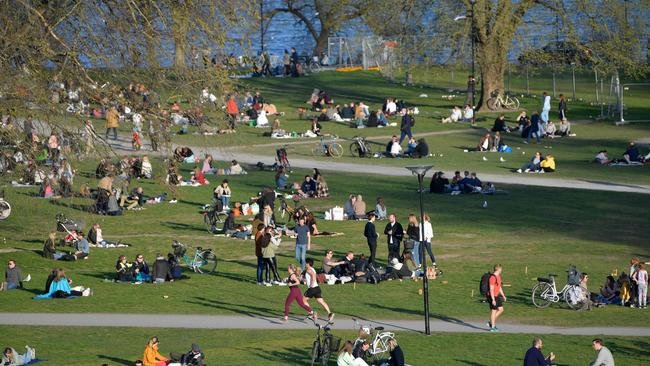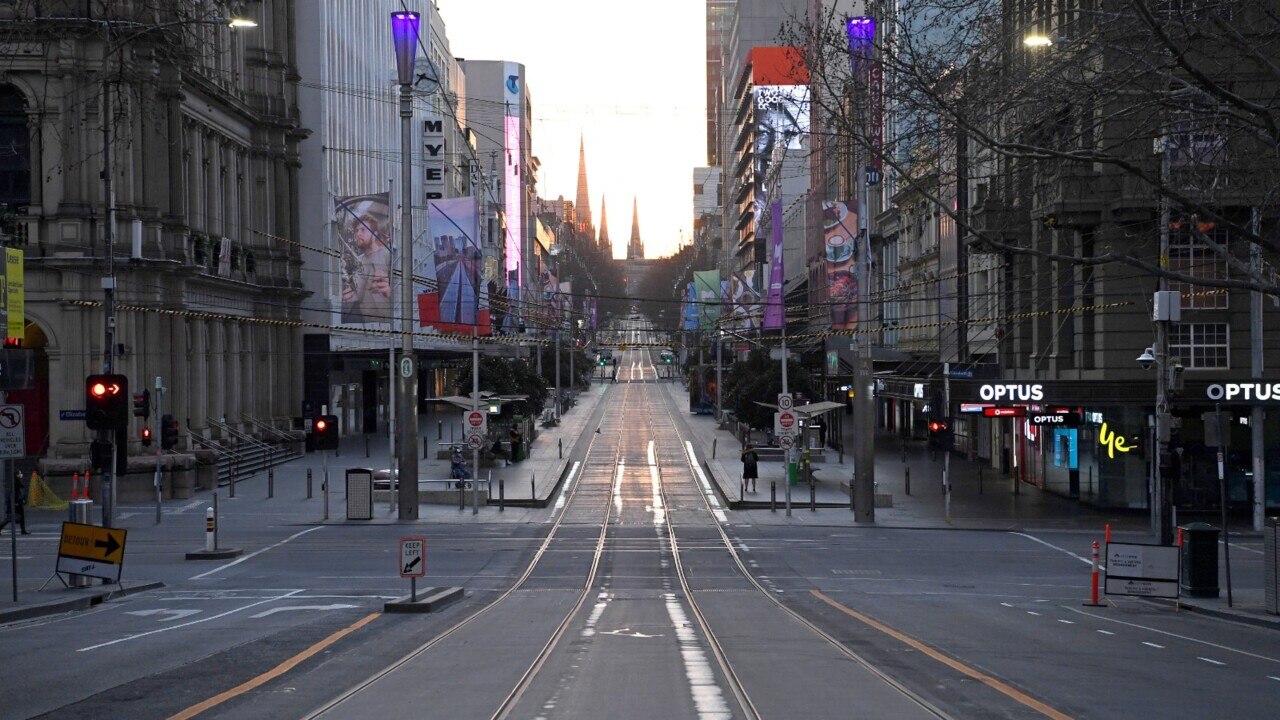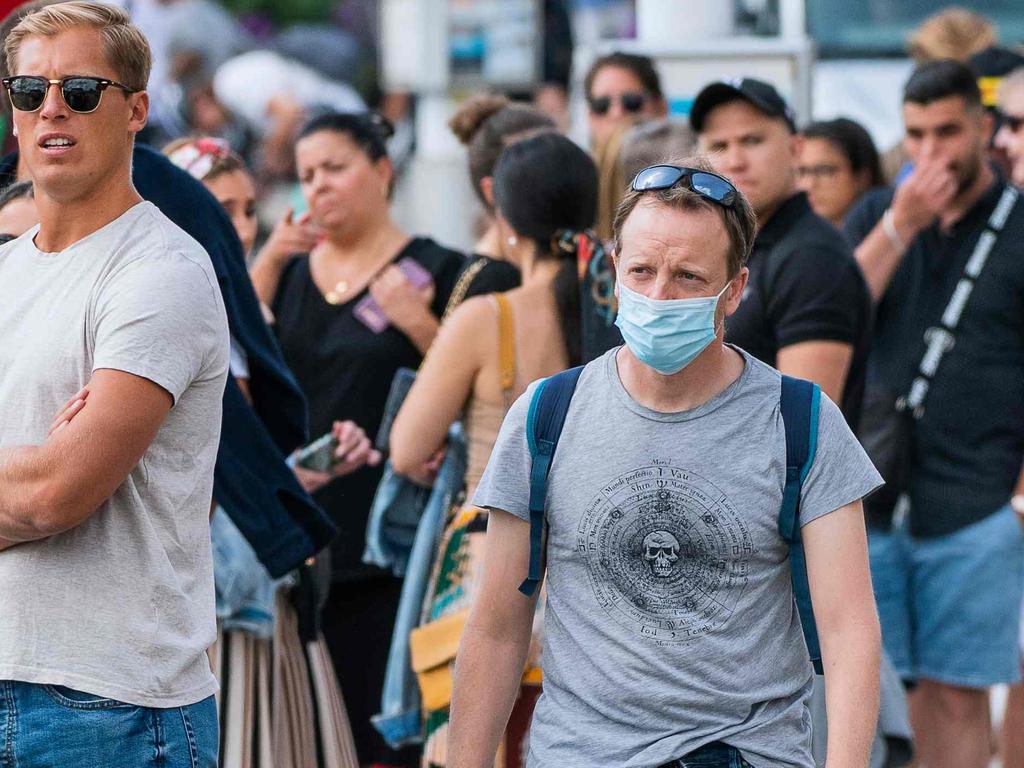Coronavirus: Sweden defied zealots and never met its Waterloo
Sweden’s impressive legacy has expanded significantly in 2020 having provided the world with a sane response to COVID.

The Scandinavian nation deserves enduring credit from reasonable people everywhere for resisting the destructive authoritarian mindset that enveloped democratic nations this year. Sweden was viciously attacked by supposed experts and mainstream media all year that if it didn’t crush commerce by fiat and suspend civil liberties indefinitely, as has occurred in Europe, many US states, and of course Victoria, more than 90,000 Swedes would die.
The army of lockdown zealots will never be able to say lockdowns are essential to avert disaster, if that wasn’t already clear enough from Japan, Taiwan and South Korea.
Historians will struggle to see a public policy disaster in Sweden. The number of deaths there from all causes so far this year, just less than 68,000, is fewer than over the same period in 2015, adjusted for population size. Far from an apocalypse, the total death rate from January 1 to September 20 is barely distinguishable from recent years, notwithstanding a jump from 2019, during which it was unusually low.

While its European neighbours, which bludgeoned their economies for months, now battle “second waves” (albeit with far lower death rates), Sweden has barely had any COVID-19 deaths since mid-July alongside a much milder uptick in so-called cases, which in any case often mean little.
The feared “exponential growth” never occurred (it never occurred anywhere). Swedish hospitals were never “overwhelmed”.
But Sweden’s GDP, which plunged 8.3 per cent in the second quarter, tanked anyway so should it have locked down too and “saved lives”? It’s a fatuous argument, faulty on its own terms, even assuming lockdowns do “save lives” overall.
For a start, its economy suffered in part because its larger neighbours, which themselves endured far bigger drops in GDP, locked down. Second, media fear-mongering left people unreasonably terrified, which, naturally, saw Swedes curtail economic activity.
In any case, looking at GDP over three months is hardly definitive. Sweden’s economy is expected to grow 4 per cent next year, twice as fast as ours, according to the Reserve Bank.
Having inflicted less economic chaos, Sweden’s gross government debt won’t rise beyond 40 per cent, according to its September budget papers, while Canberra’s debt ceiling will be lifted to the equivalent of 55 per cent of GDP along with far bigger budget deficits.

The bigger point is this: the short-term trajectory of GDP matters little. As I’ve argued for years in this column, it’s a flawed, dated measure of prosperity.
In Sweden, no one will be cowering in masks for years; Swedish police are not dragging people screaming from cars or invading homes to stop Facebook sharing. They aren’t shutting internal borders, stopping weddings, funerals or undermining children’s education. The Swedish parliament, unlike Victoria’s, isn’t using the pandemic as an excuse to increase police power. And the Swedish people never had to endure rambling, ridiculous daily press conferences for months about “cases” that belong in a scene from Nineteen Eighty-Four.
And the Swedish government hasn’t set a precedent, which will hang over business investment considerations here for a generation, that whenever a virus emerges, businesses and households will be shut down for months.
None of these factors is reflected in GDP.
There was never a health crisis in Sweden. And there hasn’t been one in Australia, either.
In the first six months of the year, there were 134 fewer deaths from respiratory diseases in Australia, which includes pneumonia and influenza, and 617 additional deaths from cancer compared with the average over 2015-19, according to the ABS’s provisional mortality statistics, released last week. Doctor-certified deaths are within the normal range.
Sweden hasn’t hitched its economic future — and the mobility of its people — to the prospect of a vaccine, either.

As our budget will make clear, forecasts of a return to normality will be contingent on an effective vaccine emerging, and one people will want to take. Given the survival rate for people under 70 is about 99.9 per cent — if they get the virus — it’s unclear how many will want to. Drug companies, under immense pressure to find a vaccine in months rather than the usual eight to 10 years, are understandably trying to wriggle out of liability if something goes wrong.
There are 243 candidate vaccines, of which nine are in stage-three trials, where the wider population testing takes place. There’s no guarantee of success. There’s been no vaccine developed for HIV, for instance.
“It is likely individuals will need two doses of a vaccine and this may need to be repeated every year,” says JP Morgan analyst David Mackie, who took stock of vaccination developments last month. “With a global population of 7.8 billion, this would require 4.7 billion individuals to be vaccinated with two doses each, separated by three to four weeks, and possibly repeated every year.”
Australia’s coronavirus elimination strategy leaves many questions unanswered. How long will we be prevented from leaving, if there’s no effective vaccine? Given the virus is contagious, is it realistic to keep it out forever (assuming it’s not prevalent here)? If not, why has Victoria imposed a 20-week lockdown on its biggest city?
Nations that don’t lock down their populations for months have been cast as immoral, but the truth is more complex. Leadership requires balancing competing objectives, governing for the long term, and being honest with people when new information emerges.
It will require a few more years of data to work out the optimal strategies to fight future pandemics. But what’s clear already — certainly to citizens of Victoria, New Zealand, Israel, the UK and Europe — is that one lockdown, as promised by proponents, does not eradicate the coronavirus.
And let’s drop the idea Swedes care less for their elderly than we do. Sweden spends the equivalent of 3.2 per cent of GDP on its aged-care facilities, compared to about 1 per cent here.








Sweden’s impressive legacy — ABBA, dynamite, Ikea, for instance — has expanded significantly in 2020, having provided the world with an example of a sane response to what’s turned out a relatively mild pandemic.